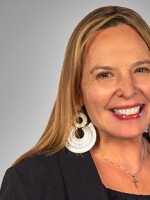BETHLEHEM, Pa. — Bullet shields on glass, panic buttons and armed guards.
Those were some of the safety protocols Rabbi Michael Singer said synagogues implemented — and continue to use — in the wake of the deadly Tree of Life synagogue shooting in Pittsburgh in October 2018.
Ashley L. Coleman, executive director of Bradbury-Sullivan LGBT Community Center, recalled how unsafe she felt in early 2023 — during her first month on the job.
"I received death threats, hate mail, threats were made against the center, and I didn't even know where the bathrooms were yet," Coleman said.
More takeaways from the screening of Repairing Our World at @PBS39Channel @rabbisinger discusses Antisemitism @LVNewsdotcom pic.twitter.com/95fmiBA7Y7
— Micaela Hood (@micaelahood) September 26, 2024
"I had to figure how on Earth do I protect the staff. How do I make sure everyone gets to and from their homes safely and how do we take care of our community that are coming to our programming when I don't know anyone?"
Those stories were part of a discussion Wednesday night on how to chip away at hate and bigotry. It was held at the Univest Public Media Center — home to Lehigh Valley Public Media and its outlets that include PBS39, 91.3 WLVR radio and LehighValleyNews.com.
The discussion followed a screening of "Repairing the World: Stories from the Tree of Life," a documentary by the nonprofit group Not in Our Town.
The film is about how the Pittsburgh area united to support members of the region's Jewish community after 11 worshipers were killed in the Oct. 27, 2018, massacre inside the Tree of Life synagogue.
The panel discussion was moderated by Janine Santoro, Bethlehem's director of equity and inclusion.
Joining Singer, of Congregation Brith Sholom in Bethlehem, and Coleman were panelists Esther Lee, president of the NAACP of Bethlehem, and Muhammed Said Selmanlar, executive director of the Peace Islands Institute Pennsylvania.
Jaqueline Romero, U.S. attorney for the Eastern District of Pennsylvania, delivered the opening remarks.
Voters and people of color
Lee, a lifelong resident of Bethlehem, was the first Black woman to be elected as a director to the Bethlehem Area School Board, serving six years from 1971 to 1977.
Five decades later, she addressed how race continues to influence voters' decision-making.
"I heard somebody on TV watching as [Vice President ] Kamala [Harris] is running for president of the United States, and I heard someone continue to inquire that she needs to expose herself more. What else are you looking for?" Lee said.
"Even locally here in Bethlehem, we cannot get past the fact of a person's color to elect them to a public office. I ran six times for an office here in Bethlehem, aside from being elected to the school board. I could not get elected.
"What is there ... that will allow us as a people and anybody of color, not just the Negroes as we call them, but Puerto Ricans and others that are different nationalities. Why can't we accept it? Let's pray about that one."
Love thy neighbor... Ashleigh Coleman discusses how the community came together to help the staff and guests of Bradbury Sullivan feel safe during a screening of Repairing the World at @PBS39Channel @LVNewsdotcom @notinourtown pic.twitter.com/p8du2q1vVF
— Micaela Hood (@micaelahood) September 26, 2024
'Help them break the prejudice'
In the latter part of the discussion, the community leaders took questions from the audience of about 65 and offered solutions on how to stop hate crimes and prejudice in the region.
Among the suggestions were for residents to speak up if they encounter or see acts of hate and violence, to volunteer or visit local organizations, and vote.
Selmanlar, who recalled he first met Singer at a multi-faith service for the victims of the Tree of Life shooting, said it's an individual's responsibility to continue the conversations on hate and prejudice.
"Our audience tonight came here voluntarily, and it's usually like that when we have this kind of initiative, people who come are actually open to dialogue or open to this kind of initiatives," Selmanlar said.
"But people who are not open to this dialogue probably won't come, so that's why we all have a responsibility to go to their door, invite them and make sure they understand why it's important.
"Help them break that prejudice. We have to make sure that they take that first step. I'm sure then they will see the value there."
The documentary is scheduled to air on PBS39 from 4 to 5:30 p.m. on Tuesday, Oct. 8.
To learn more about the film and event, click here.


